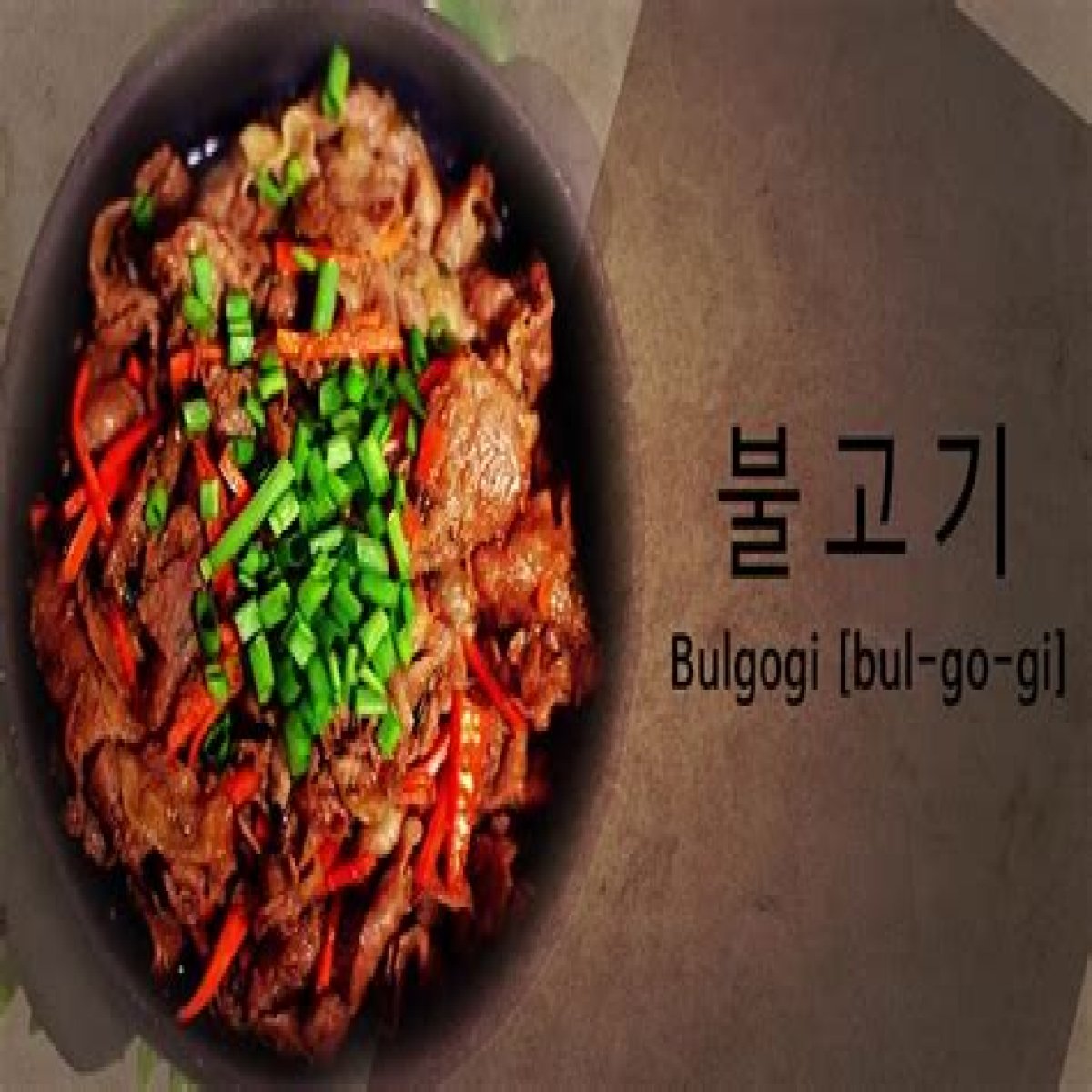Korean cuisine has gained immense popularity around the globe, and one of its most iconic dishes is bulgogi. This delicious marinated beef dish is loved for its savory flavor and tender texture, making it a staple in Korean households and restaurants alike. However, for those unfamiliar with the Korean language, the pronunciation of bulgogi might seem a bit challenging at first. Knowing how to pronounce bulgogi correctly can enhance your dining experience and help you connect more with Korean culture. In this article, we will explore the intricacies of the Korean bulgogi pronunciation, ensuring that you feel confident ordering this delectable dish next time you visit a Korean restaurant.
In addition to pronunciation, we will dive into the history and significance of bulgogi, along with tips on how to prepare it at home. By the end of this article, you'll not only be able to say bulgogi like a pro but also impress your friends with your knowledge of this beloved dish. Let’s get started on our culinary journey into the world of Korean bulgogi pronunciation!
Whether you're a seasoned foodie or a newcomer to Korean cuisine, understanding the nuances of Korean bulgogi pronunciation is a valuable skill. While it might seem daunting, with a little practice and guidance, you can master it in no time. So, let’s break down what makes bulgogi unique and how to pronounce it correctly!
What is the Correct Korean Bulgogi Pronunciation?
To pronounce bulgogi correctly, you need to break it down into its syllables. The word "bulgogi" is made up of two parts: "bul" and "gogi." The "bul" is pronounced like the English word "pool" but with a shorter 'u,' while "gogi" sounds like "go-gi." When combined, it sounds like "bool-goh-gee." Here's a quick phonetic breakdown:
- "Bul" - Sounds like "bool" but shorter.
- "Go" - Pronounced like the English word "go."
- "Gi" - Sounds like "gee" in English.
Why is Pronunciation Important in Korean Cuisine?
Pronunciation plays a crucial role in Korean cuisine, as it not only helps you order food correctly but also shows respect for the culture. Mispronouncing a dish can lead to confusion or even embarrassment. Additionally, correctly pronouncing Korean words can enhance your communication with Korean speakers and create a more immersive dining experience. Thus, learning how to pronounce bulgogi and other Korean dishes is an essential part of enjoying Korean culture.
How Do You Practice Korean Bulgogi Pronunciation?
Practicing pronunciation can be both fun and rewarding. Here are some tips to help you master the pronunciation of bulgogi:
- Listen and Repeat: Find audio clips or videos where native speakers pronounce bulgogi. Repeat after them to improve your pronunciation.
- Break It Down: Focus on each syllable, practicing until you feel comfortable saying the entire word smoothly.
- Record Yourself: Use your phone to record your pronunciation and listen back to identify areas for improvement.
- Practice with Friends: Share what you've learned with friends and practice together, making it a fun group activity!
What is Bulgogi and Its Cultural Significance?
Bulgogi, which translates to "fire meat," is a traditional Korean dish made from marinated beef that is grilled or stir-fried. It is often served with rice, lettuce leaves, and various side dishes called banchan. The marinade typically consists of soy sauce, sugar, sesame oil, garlic, and pepper, resulting in a sweet and savory flavor profile. Bulgogi is not just a dish; it represents the warmth and hospitality of Korean culture, often enjoyed during family gatherings and celebrations.
How Do You Make Authentic Korean Bulgogi at Home?
Making bulgogi at home is easier than you might think! Here’s a simple recipe to get you started:
- Ingredients:
- 1 pound beef (sirloin or ribeye, thinly sliced)
- 1/4 cup soy sauce
- 2 tablespoons sugar
- 1 tablespoon sesame oil
- 2 cloves garlic (minced)
- 1/4 teaspoon black pepper
- 1/2 onion (thinly sliced)
- 1 green onion (chopped)
- Instructions:
- In a bowl, combine soy sauce, sugar, sesame oil, garlic, and black pepper to create the marinade.
- Add the sliced beef and onions to the marinade, ensuring they are well coated. Marinate for at least 30 minutes (or overnight for better flavor).
- Heat a grill or skillet over medium-high heat and cook the marinated beef until it is browned and cooked through.
- Serve with rice, lettuce leaves, and your favorite banchan!
What Are Some Variations of Bulgogi?
While traditional bulgogi is made with beef, there are various adaptations of this beloved dish, including:
- Pork Bulgogi: Made with marinated pork, often featuring a spicier marinade.
- Chicken Bulgogi: A lighter version using chicken instead of beef.
- Vegetable Bulgogi: A vegetarian-friendly option that substitutes meat with a mix of marinated vegetables.
How Can You Enjoy Bulgogi in a Restaurant?
When you visit a Korean restaurant, ordering bulgogi can be a delightful experience. Here are some tips to enhance your dining experience:
- Order Family Style: Korean cuisine is often enjoyed family-style, so consider ordering bulgogi to share with friends or family.
- Try Different Side Dishes: Don’t forget to explore the banchan that come with your meal. They complement bulgogi beautifully!
- Pair with Soju: For a true Korean experience, consider pairing your bulgogi with soju, a popular Korean alcoholic beverage.
Conclusion: Embracing Korean Bulgogi Pronunciation and Culture
Mastering the Korean bulgogi pronunciation is not only about saying the word correctly; it’s about embracing the rich culture and culinary traditions that come with it. By learning to pronounce bulgogi and understanding its significance, you open the door to a world of flavors and experiences. So, the next time you seek a taste of Korea, confidently order bulgogi and enjoy every bite!
Discovering Elyse Myers On TikTok: The Creative Force Behind The ScreenUnveiling The Allure Of Private DelitesUnveiling The Life Of Sky Bri's Mom: A Behind-the-Scenes Look
